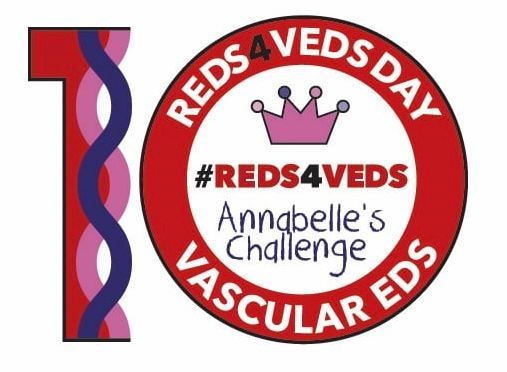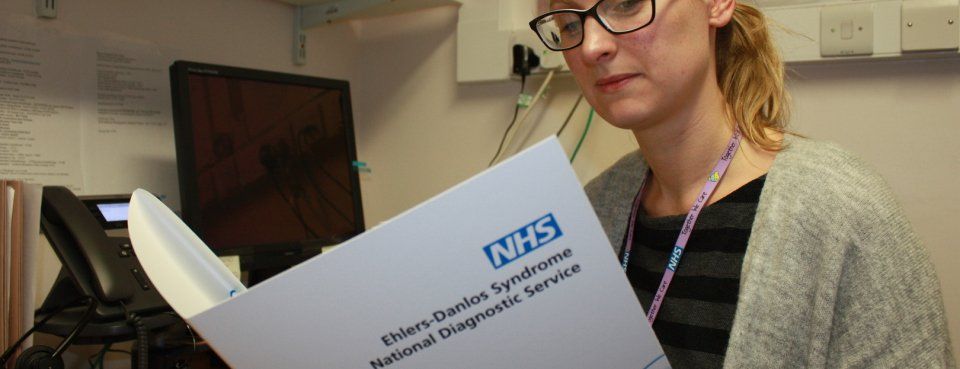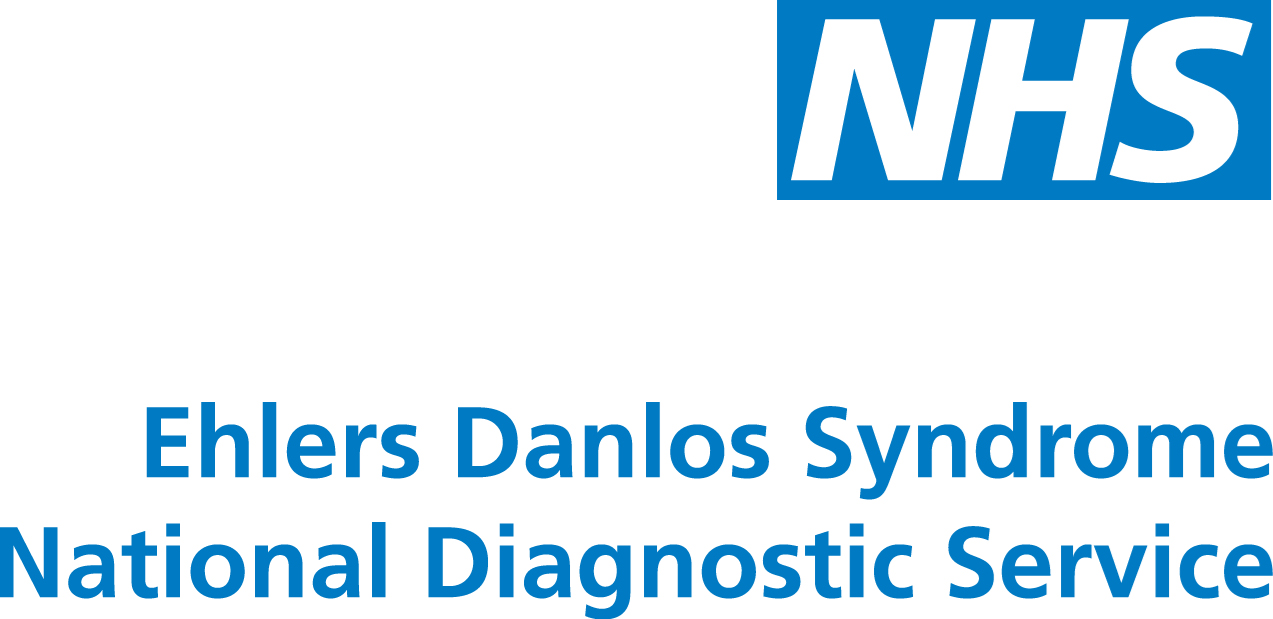Summary Care Record
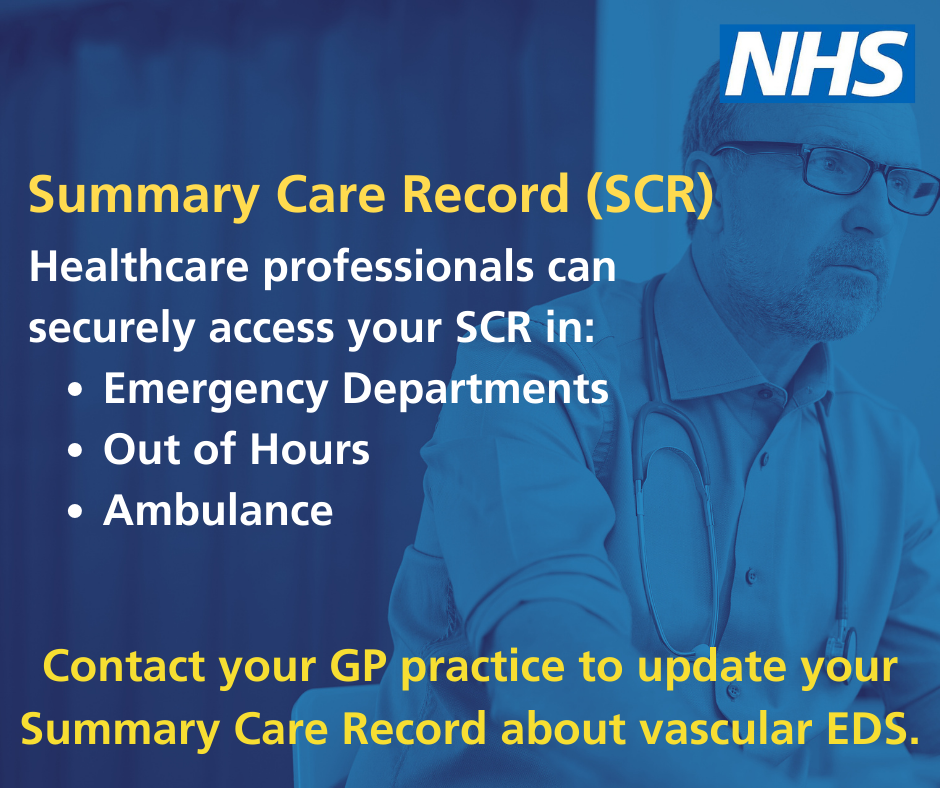
Summary Care Record - your emergency care summary
What is a Summary Care Record?
All patients registered with a GP have a
Summary Care Record (SCR), unless they have chosen not to have one. The NHS in
Scotland
and
Northern Ireland
refer to this as the Emergency Care Summary (ECS).
The Summary Care Record is an electronic record which will give healthcare staff faster, easier access to essential information about your health, to help provide you with safe treatment when you need care in an emergency including the Ambulance Service and Emergency Department (A&E).
Some patients, including many with long term health conditions such as vascular EDS, have previously agreed to have 'Additional Information' shared as part of their Summary Care Record. This additional information includes information about significant medical history (past and present), reasons for medications, care plan information and immunisations.
Who has access?
Across all health care settings, including urgent care, community care and outpatient departments. Your permission will be asked before the information is accessed, unless the clinician is unable to ask you and there is a clinical reason for access.
Information Source
Your patient record is held securely and confidentially on the electronic system at your GP practice. If you require treatment in another NHS healthcare setting such as an Emergency Department or Minor Injury Unit, those treating you would be better able to give you appropriate care if some of the information from the GP practice were available to them.
Content
The information in your SCR/ECS can include:
- medicines your GP has prescribed
- allergies you have
- vaccinations you've had
- conditions you've been diagnosed with such as vascular EDS
- your care plan
- notes from appointments at your GP surgery
- results of tests your GP surgery has arranged
- letters that hospitals or specialists have sent to your GP
Additional Information
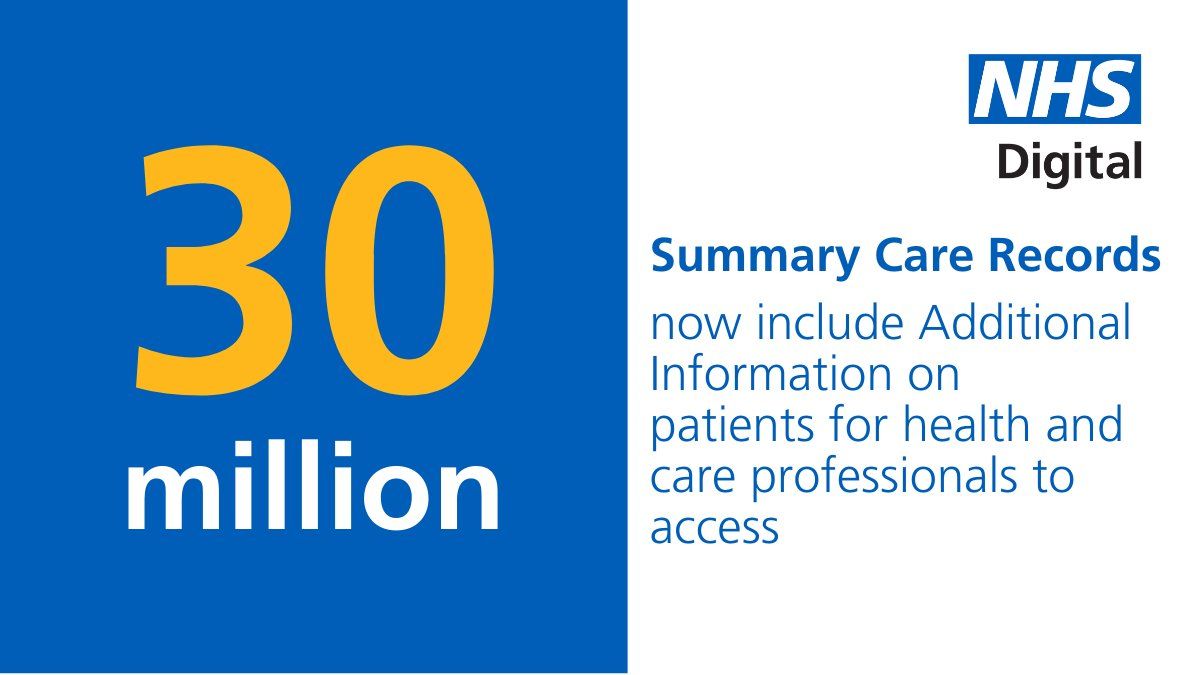
Summary Care Records with Additional Information include significant medical history and procedures, anticipatory care information, immunisations, end of life care information and communication preferences.
You can choose how much additional information is shared through your Summary Care Record. You are much more likely to reap the benefits of SCR if you choose the enhanced version (option 2).
Option 1: You can choose to have a ‘core’ Summary Care Record
All patients, unless they have opted out, have a ‘core’ Summary Care Record including basic information about their current medications, allergies, and bad reactions they have had to medicines.
Option 2: You can choose to have an ‘enhanced’ Summary Care Record
This means your record will contain the ‘core’ information plus additional information that you think would be helpful for the healthcare staff who treat you. You must give your explicit consent for this.
That additional information could include:
- Information about your long term health conditions - such as vascular Ehlers-Danlos syndrome.
- Your relevant medical history - clinical procedure that you have had, why you need a particular medicine, the care you are currently receiving and clinical advice to support your future care.
- Your healthcare needs and personal preferences - you may have particular communication needs, a long term condition that needs to be managed in a particular way, or you may have made legal decisions or have preferences about your care that you would like to be known.
- Immunisation information - details of previous vaccinations, such as tetanus and routing childhood jabs.
Advice for vEDS patients
Check with your GP practice that your SCR is updated with additional information about your vEDS diagnosis.
You will need to give consent to your GP Practice to add 'Additional Information' (Key Information Summary (KIS) in Scotland and Northern Ireland) to your SCR.
We recommend that your SCR Additional Information should include:
- Diagnostic confirmation of vascular Ehlers-Danlos syndrome.
- Emergency Information for Medical Professionals document.
- Letters from the EDS Service (If you are seen by the London or Sheffield service they will have provided your GP a personalised letter). This can also be arranged if you are new to the EDS Service.

